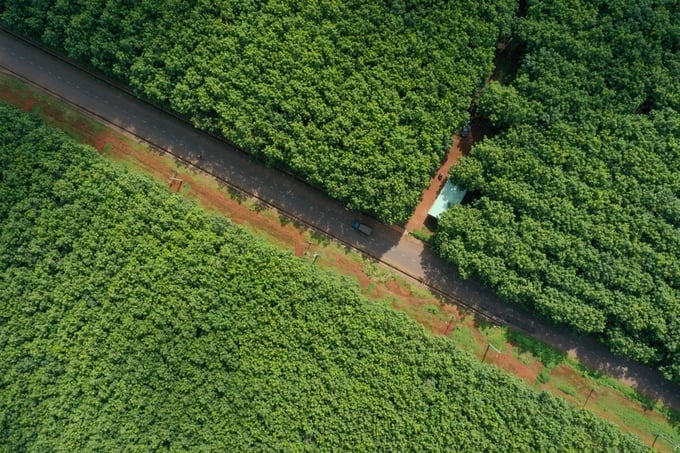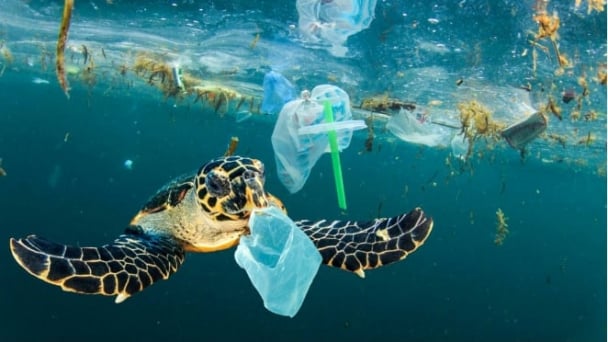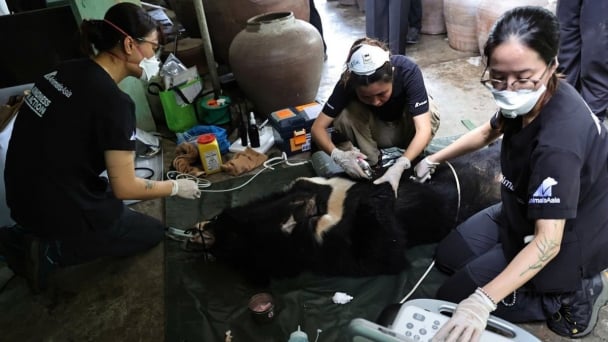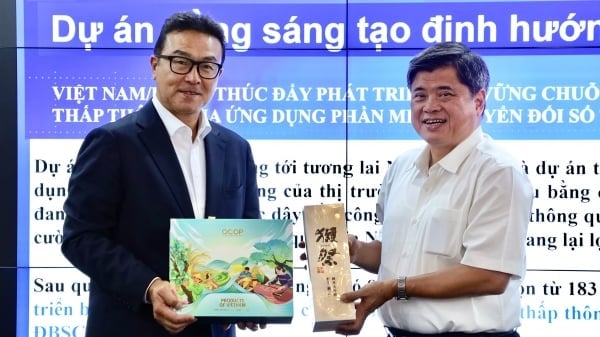May 25, 2025 | 16:42 GMT +7
May 25, 2025 | 16:42 GMT +7
Hotline: 0913.378.918
May 25, 2025 | 16:42 GMT +7
Hotline: 0913.378.918
The European Commission (EC) has recently released a country risk classification list under the EU Deforestation Regulation (EUDR), which aims to ensure that products consumed within the European Union (EU) do not contribute to global deforestation.

The European Commission has just released a list of ‘low-risk’ countries for deforestation, which includes Vietnam. Photo: Tung Dinh.
According to the EC's risk classification list, Vietnam is a "low risk" country. This means that products such as coffee, rubber, and timber exported from Vietnam to the EU will be subject to a simplified due diligence process, with only 1% of shipments required to undergo compliance checks.
Indonesia and Brazil, despite having experienced high deforestation rates in the past, are classified as “standard risk” countries under the EUDR, although they are major exporters to the EU. Only four countries have been designated as “high risk”: Belarus, Myanmar, North Korea, and Russia. These countries will be subject to the strictest control measures when exporting commodities such as timber, coffee, rubber, cocoa, palm oil, soy, and beef to the EU.
Vietnam’s classification as a “low risk” country for deforestation does not alter the legal obligations of exporters. They are still required to comply fully with all provisions of the EUDR. However, the implementation process offers certain advantages and differences. Notably, the frequency of compliance checks is reduced: only 1% of shipments from “low risk” countries will be randomly selected by EU authorities for inspection, compared to 3% for “standard risk” countries and 9% for “high risk” ones.
In addition, there is a lower risk of suspension or investigation, meaning that businesses from “low risk” countries are less likely to be scrutinized. This helps reduce customs clearance time and associated costs.
According to Mr. Tran Van Cong, Viet Nam's Agricultural Counselor to Belgium and the EU, said Vietnam’s classification as a "low risk" country is a positive result of the cooperation efforts between the two sides in recent years, particularly within the framework of the Voluntary Partnership Agreement on Forest Law Enforcement, Governance and Trade (VPA/FLEGT), as well as joint activities on environmental protection and sustainable development.
Vietnam’s designation as a “low risk” country for deforestation eases the burden of post-verification and offers a competitive advantage. However, it does not exempt exporters from due diligence and supply chain transparency obligations. Vietnamese enterprises are still required to prepare complete documentation and data, especially geolocation-based traceability systems.
In response to this new classification, the EUDR–Forestry Network recommends that the Vietnamese government maintain and strengthen its “low risk” status by continuing to implement forest protection policies, enhancing land-use management and monitoring, and promoting reforestation and forest restoration programs.
At the same time, the government should support businesses and farmers by providing training and technical assistance to help them meet the EUDR requirements particularly in collecting and managing data on product origin.
This favorable classification provides a competitive edge for Vietnam's agricultural and forestry sectors, particularly in key export commodities such as coffee, rubber, and timber. However, it is important to emphasize that the EUDR still mandates full compliance with due diligence requirements. Being in the “low risk” group does not exempt Vietnamese exporters from obligations related to supply chain transparency, legal sourcing, and traceability.
For businesses, the EUDR–Forestry Network recommends establishing robust supply chain management systems to ensure full traceability from source areas to final products, using digital technology and geospatial data.
Companies must also comply with legal requirements, ensuring that all production and extraction activities adhere to land-use regulations, environmental protection laws, and labor rights standards.
Additionally, businesses should invest in training and awareness-raising by organizing capacity-building programs for employees and supply chain partners on EUDR requirements and the importance of forest conservation.
Exporting enterprises must still prepare and submit complete records demonstrating that their products do not originate from deforested land or from areas where forest degradation has occurred after the cut-off date. A core component of this compliance is the ability to trace commodities back to their geographical origin, often requiring geolocation data and robust chain-of-custody documentation.
While Vietnam’s designation as a low-risk country under the EUDR presents meaningful advantages, it also comes with responsibilities. The ability to maintain this status will depend on the country’s continued commitment to forest governance, policy enforcement, and sustainable production practices. Through close collaboration among the government, private sector, and international partners, Vietnam can position itself as a global leader in sustainable and deforestation-free supply chains.
Translated by Kieu Chi

(VAN) The convenience of single-use plastics is leaving lasting consequences for the oceans.

(VAN) On the morning of May 23, in Nghe An, the Animals Asia Foundation successfully rescued a Tibetan bear and transferred it to the Vietnam Bear Rescue Centre located in Bach Ma National Park.

(VAN) On May 23, Deputy Minister of Agriculture and Environment Tran Thanh Nam held a working session with a Japanese delegation on the application of digital technology in agricultural production.

(VAN) In the tranquil wetlands of Van Long, there are quiet souls who guard the forests, nurture the waters, and oversee every bird and troop of langurs as protecting the essence of a living heritage.

(VAN) WWF, GIZ, IUCN, UNDP call for biodiversity conservation and sustainable development must be regarded as a unity in strategies for a green future.

(VAN) On celebration of International Day for Biological Diversity, Deputy Minister Nguyen Quoc Tri called for practical actions to address nature and biodiversity conservation.